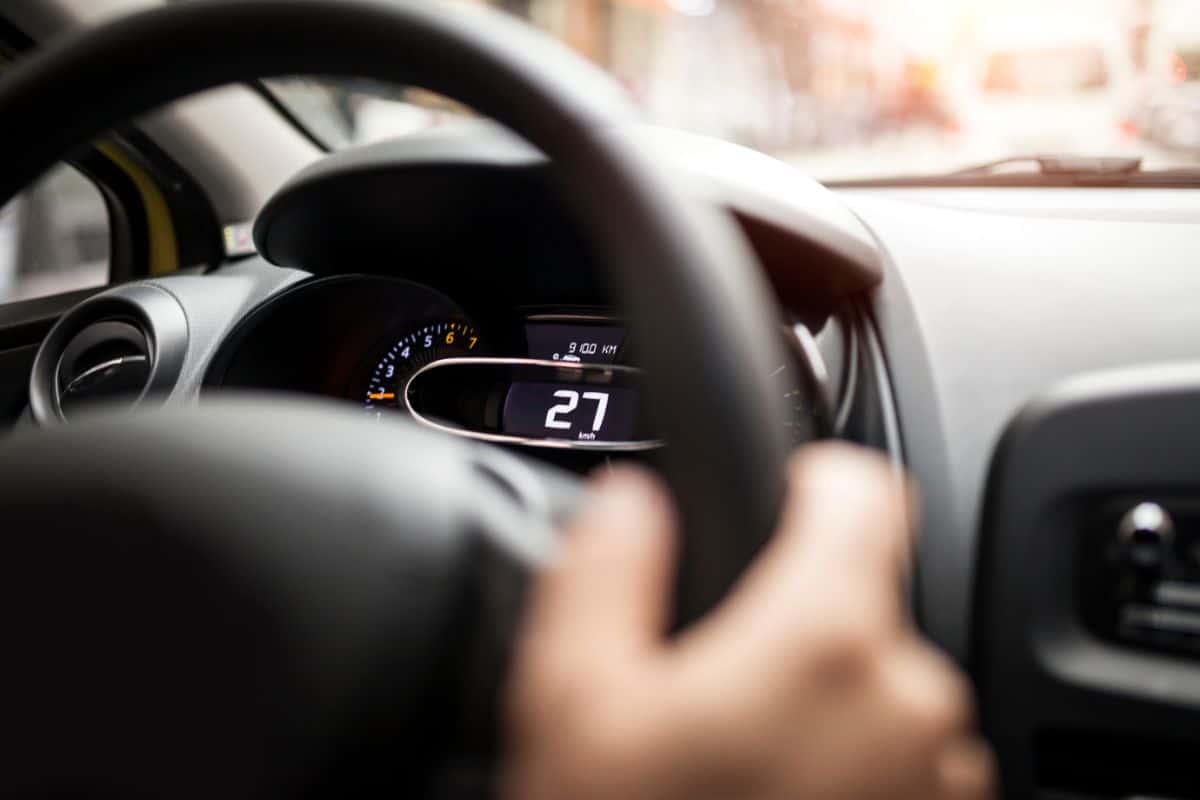On a full charge, the majority of electric cars typically have a range of 100–300 miles.
Many drivers are especially concerned about this at the moment, as EV charging points are still much more scarce than conventional gas stations in much of the country.
If you want to learn more about the mileage of an electric car, then continue reading to find out everything you need to know!

The Average Electric Car Range
While the average range of an electric car with a full charge is anywhere from about 100 to 300 miles, it often depends on the make and model of the electric car in question.
Having said that, it’s probably worth taking a look at the ranges of some of the most popular electric vehicles in the United States today.
The Tesla Model Y, which is currently the most popular electric car in the US, has a standard range of 244 miles.
That’s enough for you to complete a round trip between New York and Philadelphia with some 50 miles to spare.
If you opt for the long-range version, you’ll get 326 miles.
The Tesla Model 3, Tesla’s second most popular offering in the US, has a standard range of 263 miles, whilst the long-range model has a range of approximately 353 miles.
Away from Tesla, the Nissan Leaf has the distinction of being one of the longest-lived electric cars on the US market, which it first entered way back in 2011.
Although it has since been eclipsed by other models, the Leaf is still among the more popular electric vehicles in the country.
However, it’s easy to see why its popularity is diminishing- compared to newer electric cars, it just doesn’t have the range.
The original leaf, with its 40kWh battery, had a claimed 168 miles of range on a single charge, though in reality it often falls well short of those figures.
The newer Leaf e+, with its larger 62kWh battery, has a significantly improved range of 239 miles, though again whether this translates to real-world driving is a different question.
The two cars at the extremes are the Honda e and the Tesla Model S Long Range.
The former manages just 137 miles per full charge, whilst the latter manages a whopping 412 miles.
Is The Range Of An Electric Vehicle Important?
Fully electric vehicles can’t charge themselves, so it’s important to know roughly how far your car can travel on a single charge. But how important is it in practice?
Lots of people suffer from what’s known as ‘range anxiety’ in relation to electric cars, which is the fear that the vehicle will have insufficient battery, even on a full charge, to complete their journey without making a stop to charge.
The EV Charging Network Is Expanding
In reality, range anxiety is misguided, and is becoming less of a concern with each passing year.
Of course, gas stations are still far more prevalent than charging stations, but the country’s EV charging infrastructure is beginning to catch up.
As of September 2021, the United States has 43,000 public electric vehicle charging stations with roughly 120,000 charging ports between them.
The vast majority of these stations are level two stations, which take roughly five hours to fully charge an EV, although more and more fast charging stations- that can reach 80% charge in as little as 20 minutes- are being brought online.
More and more charging stations are popping up with each passing month, although it should be noted that the geographic distribution of these is heavily concentrated in states like California, New York, and Florida.
The Average Journey Is Comfortably Within Average EV Range

Although Americans are famously impervious to long drives, considering anything up to a two-hour journey to be a ‘short’ trip, the average journey in the USA is surprisingly short.
The average commute to work, for example, is just 16 miles. That’s a round trip of 32 miles, or about an hour’s drive. These trips alone account for one-sixth of all car use.
According to the United States Department of Transportation, the average driver drove about 39 miles per day in 2019.
Again, that’s well within the average EV range of 100-300 miles on a full charge.
Most Americans have access to parking, and can then charge their EVs overnight, ready to go again the next day.
What About Long Trips?
The reality is that the vast majority of trips taken in this country are short. 59.4% were less than six miles in 2017, while 75% of all trips were under 10 miles.
Nevertheless, concerns about EV range whilst taking long trips persists.
This shouldn’t really be a concern either, since when driving long distances you are supposed to take periodic breaks every few hours anyway.
Plan your stops so that you take a break somewhere with an EV charging point.
That way, whilst you rest, your car can fill up on some juice. It’s totally possible to do coast to coast in an electric vehicle, with a little planning.
Even the Nissan Leaf, with its relatively poor range, can make the distance between the two furthest apart charging stations in the lower 48 states.
That’s the 119 miles between the EV chargers in Rawlins and Casper, both in Wyoming.
Final Thoughts
The average range of an electric car on a full charge is roughly 100-300 miles, depending on the model, although some cars can go 400 miles or more.
As battery technology improves and the public charging infrastructure catches up, though, the range of an EV is becoming an increasingly redundant question.
It’ll be like the size of a fuel tank- worth knowing, but with no real-world bearing on how far you can travel.
- Tesla Charger Installation Cost (Home Setups) - March 1, 2024
- Tesla Phone Key Disconnected (Troubleshooting Guide and Quick Fixes) - March 1, 2024
- Tesla FSD 12 (Explained) - March 1, 2024